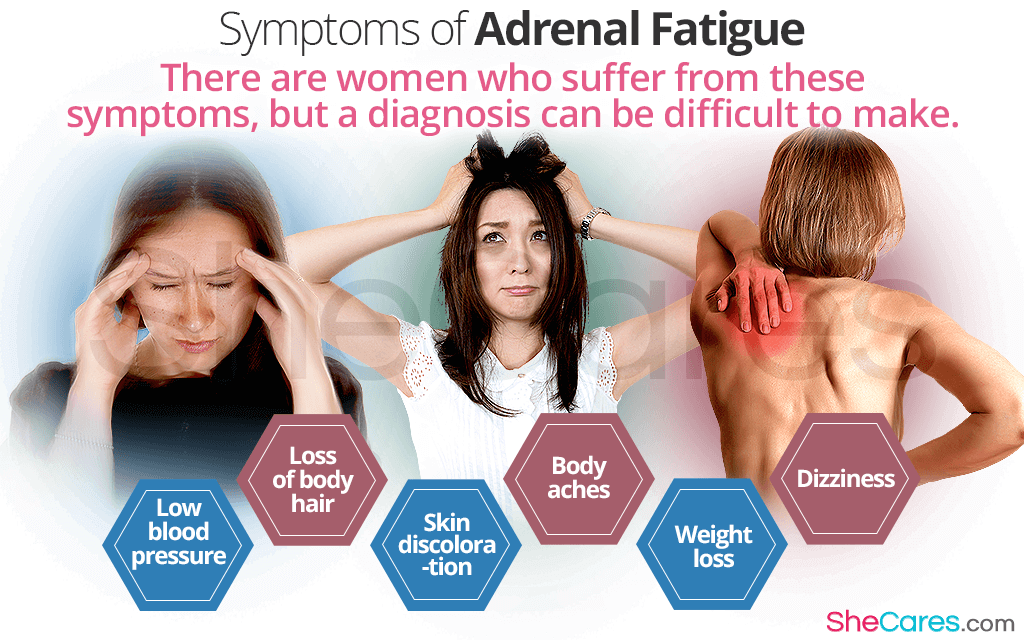When researching conditions that cause excessive fatigue, it is common to come across a mention of adrenal fatigue syndrome. However, oftentimes, this term is not explained fully, and some murkiness surrounds its use. To learn more about what adrenal fatigue means and what you need to know about it, keep reading.
Adrenal Fatigue is Not Medically Accepted
The first and most important thing to know about adrenal fatigue is that it is not a medically-accepted diagnosis. Although many websites focusing on fatigue and health may mention adrenal fatigue as a possible diagnosis, be aware that the medical community at large does not consider it a valid condition.
The reason that adrenal fatigue is not accepted is because there is no scientific evidence that supports the claims made by proponents of the diagnosis. Tests done on women claiming to suffer from adrenal fatigue offer no conclusive evidence of any adrenal dysfunction related to the symptoms supposedly caused by this theoretical condition.
Blood tests can show hormone levels and thus can determine the level of adrenal function, but they have not been able to detect any changes in the hormone levels of women who claim to be afflicted with adrenal fatigue. The adrenal fatigue theory suggests that the changes in hormones are so slight that the body would notice the changes while a medical test would not, but this cannot be proven.
Symptoms of Adrenal Fatigue
According to its supporters, adrenal fatigue is a condition that primarily causes fatigue, but also a number of other symptoms that can cause problems in a woman's life. These adrenal fatigue symptoms include:
- Low blood pressure
- Loss of body hair
- Skin discoloration
- Body aches
- Weight loss
- Dizziness
Hormonal Cause of Adrenal Fatigue
Supporters of adrenal fatigue claim that the condition is caused by long-term stress. According to this theory, the adrenal glands - which control many essential bodily hormones, including stress hormones - become overwhelmed by the chronic stress and the constant need for a high output of hormones. Eventually, the adrenal gland begins to produce less and less of the necessary hormones, such as cortisol.
What Should You Do If You Think You Have Adrenal Fatigue?
The reason that adrenal fatigue has been gaining attention on healthy living sites and in the media is because there are women who suffer from the symptoms listed above, but a diagnosis can be difficult to make.
If you think you have adrenal fatigue or have been diagnosed with adrenal fatigue, you should visit a doctor to explore other possible diagnoses. Because this condition is not medically recognized, there are no official medical adrenal fatigue treatments available, which means that exploring the possibility of a different diagnosis could provide you with the treatment needed to improve your life.
Because there is no evidence available to either prove or disprove the theory of adrenal fatigue, it is difficult to say with certainty that it is a nonexistent diagnosis. However, because it was a theory developed without the use of evidence, it is best to treat it as though that does not exist until it can be proven. While adrenal fatigue may not be real, the symptoms that it is said to cause are certainly real and cause difficulties for many women. Learn more about treating fatigue.
Sources
- Cadegiani, F.A. et al. (2016). Adrenal fatigue does not exist: a systematic review. BMC Endocrine Disorders, 16(1), 48. Retrieved from https://www.ncbi.nlm.nih.gov/pmc/articles/PMC4997656/
- Hormone Health Network. (2017). Adrenal Fatigue. Retrieved May 16, 2017, from http://www.hormone.org/diseases-and-conditions/adrenal/adrenal-fatigue
- Nippoldt, T.B. (2017). Is there such a thing as adrenal fatigue? Mayo Clinic. Retrieved May 16, 2017, from http://www.mayoclinic.org/diseases-conditions/addisons-disease/expert-answers/adrenal-fatigue/faq-20057906
